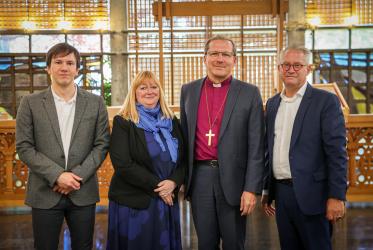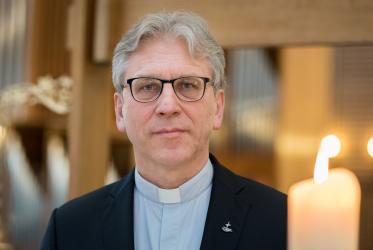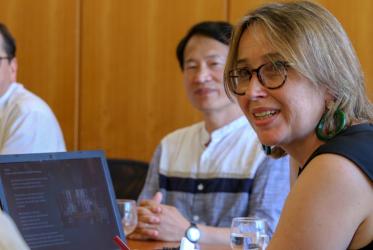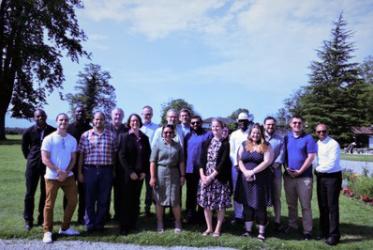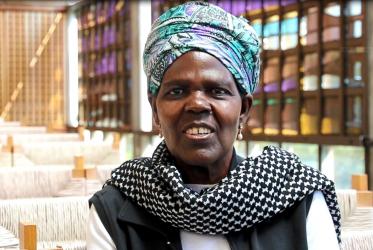Displaying 1 - 20 of 41
29 September 2023
WCC honoured with Geneva Engage Award
01 February 2022
Driven by God’s grace and a sense of duty
05 November 2020
A visionary missionary heads home
25 March 2020
Bossey gathers students for interreligious dialogue
02 July 2019
WCC moderator “A call for equality in God’s house”
08 April 2019
Paving the way for ecumenical studies, learning English in Bossey
24 September 2018
#WCC70: Nathan Söderblom, ecumenical pioneer
29 August 2018
WCC welcomes Muslim World League general secretary
09 November 2017
